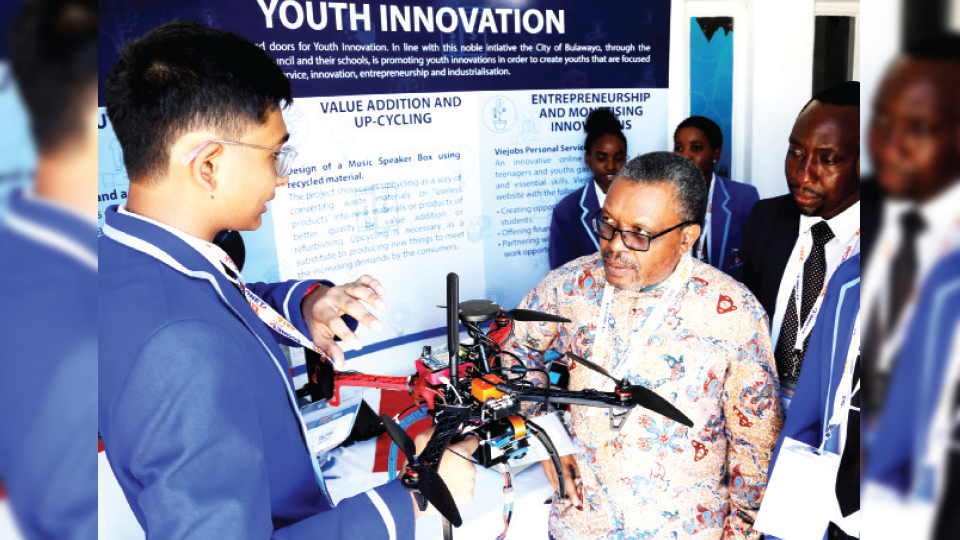Hwange school caught in eye of forex scandal

Fairness Moyana in Hwange
AN elite school in Hwange has been caught in the eye of a forex scandal following allegations that it has been charging fees using the parallel market rate in violation of Government directives.
Parents are accusing Coalfields Primary School of hiking fees without consulting them and using black market rates to convert it for those paying in local currency.
The school authorities yesterday drew the ire of parents after barring children, who had not paid the initial 50 percent increase.
Parents besieged the school demanding that their children be allowed to attend classes.
When a Chronicle news crew arrived at the school, children could be seen milling around the entrance, while others were playing. The parents are accusing the school of unilaterally and unjustifiably increasing school fees without consultations.
The school is demanding US$470 or $70 500 per pupil per term.
Investigations showed that it is not the first time the school has used the black-market rate for local currency payments, as this happened from the first term of this year.
Recently the school demanded US$1 or $150 for its civvies day, a sign that the school was using an exchange rate of US$1:$150.
In a letter dated September 13 addressed to parents announcing the increase, the school board of directors chairperson Mr Andrew Kondowe said the new fees had strict timelines without stating the reasons for the hike.
“As we strive to complete the final third term of the year 2021, the board wishes to advise the parents of the following fees structures: ECD A-$66 600, ECD B-$68 250, Grade 1-7- $70 500. The first 50% of the tuition must be paid by 30 September 2021 and remaining 50% must be paid on or before 29 October 2021. Strict measures to ensure adherence to this arrangement shall be applied at the appointed times to safeguard Coalfields and ensure a smooth running of the school,” reads the letter in part.
The board also said it was resuming its capital projects interrupted by the Covid-19 outbreak before demanding each learner contributes US$50 as Capital Development levy.
However, parents argue that the development is in violation of the Government’s education and financial policies.
Government has barred schools from turning away children over fees, while increases should be consultative and approved by the ministry.
On the exchange rate, institutions are required to use the official rate determined by the Reserve Bank of Zimbabwe auction, which is currently at $87, 6 to the American dollar.
“Government gazetted that there will be two terms in 2021, but the school is imposing three terms. Yes, we understand that it’s a private school and they have running costs, but we can’t pay 100 percent when Government said 30% increment. So, we informed the school in writing of that and we requested a meeting so that we could highlight our grievances. We can meet mutually towards a resolution, but they denied us that and have not responded to our letters.
“We are not refusing to pay school fees for our children, but we are saying there is no justification to the increase and secondly no meeting or consultation was done with parents. What we got were orders to pay within certain timelines.
The next thing our children are being denied entry into the school which is a clear violation of a Government directive. On top of that the school has been using black market rates, which is another violation. We have asked for clarity on the matter, but the head is not keen on giving us an audience,” said one parent, who refused to be named for fear their child would be victimised.
Another parent, who only identified herself as MaSiziba, said the state of the school infrastructure, especially the ablution facilities, is worrisome given the amount of money they were paying.
“From the time they started asking for the development levy there is nothing to show that it’s being used and that is also part of the reason we are requesting for a meeting. The toilets themselves are in shambles, no ground work has been done for the classroom blocks they promised to build. We don’t know what is actually happening,” she said.
The standoff resulted in officials from the Ministry of Primary and Secondary Education intervening despite resistance from the school head Mrs Martha Zikhali.
District Schools Inspector Mr Walter Moyo had to force Mrs Zikhali’s hand to allow learners to attend classes.
Police were called in to restore order, but left shortly after both parties assured them that everything was under control.
Mrs Zikhali referred all inquiries to the school’s board chair when approached for comment.
The school board chair was unreachable and didn’t respond to messages sent to his mobile phone.











Comments